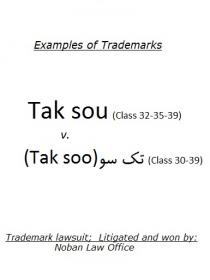WIPO Beijing Treaty on Audiovisual Performances is Concluded
Beijing, June 26, 2012
PR/2012/714

The diplomatic conference to finalize a new treaty for audiovisual performers was successfully concluded on June 26, 2012 as negotiators from WIPO’s member states signed the Beijing Treaty on Audiovisual Performances– so-named in recognition of the city that hosted the final round of negotiations. The new treaty brings audiovisual performers into the fold of the international copyright framework in a comprehensive way, for the first time.
Welcoming the excellent atmosphere that characterized the talks, WIPO Director General Francis Gurry thanked the Government of China and the Municipality of Beijing for the outstanding organization of the Diplomatic Conference on the Protection of Audiovisual Performances which met from June 20 to 26, 2012. He expressed gratitude particularly to the National Copyright Administration of China (NCAC) and the Municipality of Beijing for taking the lead in staging the Diplomatic Conference and for their generosity.
The President’s gavel brought an end to over 12 years of negotiations held under WIPO auspices. Mr. Gurry hailed this major development in the history of international copyright as a success of the multilateral system. “The conclusion of the Beijing Treaty is an important milestone toward closing the gap in the international rights system for audiovisual performers and reflects the collaborative nature of the multilateral process,” Mr. Gurry said. He noted that “the international copyright framework will no longer discriminate against one set of performers.”
Mr. Gurry expressed hope that member states would continue to build on the excellent “spirit of Beijing” to take forward the work of the Organization in other key areas.
Speaking at the closing ceremony, Member of the Political Bureau of the Central Committee of the Communist Party of China (CPC) and the Secretary of the CPC Beijing Municipal Committee Liu Qi, described the Treaty as the pride of Beijing. ”Respect for IP is a must,” he said. “We will grasp this opportunity to further strengthen intellectual property and build Beijing as the first city of IP.”
NCAC Minister Liu Binjie, who presided over the Diplomatic Conference, praised the “constructive climate, spirit of cooperation, flexibility and pragmatism demonstrated by all the delegations” and appealed to member states to expedite the process of ratification and accession to the Treaty.
The closing ceremony was also attended by the Mayor of Beijing Guo Jinlong, Vice Minister of NCAC Yan Xiaohong and Deputy Mayor of Beijing Lu Wei.
The Diplomatic Conference was opened by China State Counselor Liu Yandong and Beijing Deputy Mayor Lu Wei.
At the opening of the Conference actors from around the world – including American Meryl Streep, Brazilian Sonia Braga, Chinese Mei Baojiu and Spanish actors Javier Bardem and Antonio Banderas – appealed for adoption of the treaty ![]() LATIN ARTIS/FIA Video. In a closing message, international actors present at the Diplomatic Conference hailed the successful conclusion of the treaty
LATIN ARTIS/FIA Video. In a closing message, international actors present at the Diplomatic Conference hailed the successful conclusion of the treaty ![]() Video. Chinese performer Wang Xiaotang, Indian film producer Bobbi Bedi and International Federation of Actors (FIA) President Agnette Haaland addressed delegates at the closing of the Conference.
Video. Chinese performer Wang Xiaotang, Indian film producer Bobbi Bedi and International Federation of Actors (FIA) President Agnette Haaland addressed delegates at the closing of the Conference.
The Diplomatic Conference was attended by 156 member states, 6 intergovernmental organizations and 45 non-governmental organizations. This is the highest level of participation ever at a WIPO Diplomatic Conference. 122 countries signed the Final Act of the treaty, and 48 countries have signed the treaty itself.
Entry into Force
The treaty will enter into force once it has been ratified by 30 eligible parties, including countries or certain intergovernmental organizations.
Signature of the treaty constitutes a preliminary endorsement by demonstrating the state’s intent to examine the treaty domestically and consider ratification, though signing does not create a binding legal obligation to ratify.
Ratification or accession signifies an agreement to be legally bound by the terms of the treaty. Though accession has the same legal effect as ratification, the procedures differ. In the case of ratification, the state first signs and then ratifies the treaty. The procedure for accession has only one step and is therefore not preceded by an act of signature.
Most commonly, countries that support a treaty sign shortly after it has been adopted. They then ratify the treaty when all of their domestically required legal procedures have been fulfilled. Other states may begin with the domestic approval process and accede to the treaty once their domestic procedures have been completed, without signing the treaty first.
Impact of Beijing Treaty on Audiovisual Performances
The Beijing Treaty on Audiovisual Performances (BTAP) will strengthen the economic rights of film actors and other performers and could provide extra income from their work. It will potentially enable performers to share proceeds with producers for revenues generated internationally by audiovisual productions. It will also grant performers moral rights to prevent lack of attribution or distortion of their performances.
Importantly, the new treaty will strengthen the precarious position of performers in the audiovisual industry by providing a clearer international legal framework for their protection. For the first time it will provide performers with protection in the digital environment. The treaty will also contribute to safeguarding the rights of performers against the unauthorized use of their performances in audiovisual media, such as television, film and video.
Background and Historical Context
When the International Conference for the Protection of Authors’ Rights was convened in 1883, the delegates of literary societies, artists, writers, and publishers from various nations set out to draft clear and concise articles that would unify the legal framework for literary properties and summarize the principles acceptable to all nations. The resulting Berne Convention succeeded in protecting intellectual property rights for creative works of authors and artists.
The early 20th century saw the development of an entire industry around silent films, and soon after, talking pictures. For the first time, performers - such as actors and singers - were being recorded, and their performances were reproduced and distributed to audiences, both domestically and internationally. This extended the reach of these productions beyond live audiences. This was one reason the Berne Union, the International Labour Organization (ILO) and the United Nations Educational, Scientific and Cultural Organization (UNESCO) formulated the International Convention for the Protection of Performers, Producers of Phonograms, and Broadcasting Organization of 1961 (Rome Convention). While the Rome Convention provided protection for audio performers, it only gave limited rights to audiovisual performers.
In 1996, the WIPO Performances and Phonograms Treaty (WPPT) was signed, and it entered into force in 2002. The WPPT modernized international standards for sound performances. Audiovisual performers and their performances continued to be largely unprotected by international standards.
News Source: WIPO Official Website












